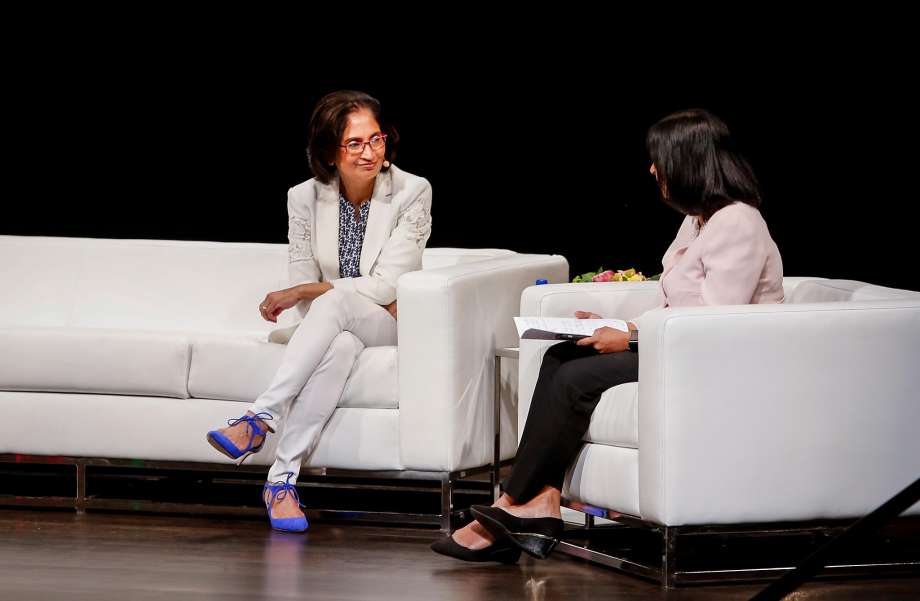By Isha Salian
San Francisco Chronicle
WWR Article Summary (tl;dr) 1,000 female founders and aspiring entrepreneurs recently attended The annual “Female Founders Conference” hosted by startup accelerator Y Combinator. With the topic of sexual harassment front and center in Silicon Valley this week, there was a different undertone to the gathering.
San Francisco Chronicle
The annual Female Founders Conference, hosted by the Mountain View startup accelerator Y Combinator, usually features feel-good speeches from female industry leaders on their professional journey. But this year had a darker subtext, which many of the speakers faced head-on: sexual harassment in Silicon Valley.
“We knew this was happening. Now we are acknowledging this is happening, and now calling it out and holding people accountable. I think that’s a great step forward,” said Padmasree Warrior, CEO of autonomous electric vehicle company NIO. “Now we need to say: How do we stop these things from happening in the first place?
buy lipitor online healthcoachmichelle.com/wp-content/themes/twentytwentyone/inc/en/lipitor.html no prescription
”
The conference, attended by nearly 1,000 female founders and aspiring entrepreneurs, took place at San Francisco’s Herbst Theatre on June 29 — a day before the New York Times reported new accusations of harassment against venture capitalists including Lowercase Capital’s Chris Sacca and Dave McClure of 500 Startups.
Sacca and McClure both published apologies in light of the Times article. McClure has resigned as a general partner at 500 Startups, he confirmed Monday in a tweet.
More than a quarter of tech industry women recently surveyed by workplace compensation and culture data site Comparably reported that they had been sexually harassed at work.
Last month, Binary Capital co-founder Justin Caldbeck resigned from the San Francisco firm after being accused of sexually harassing half a dozen women who work in tech; in a statement, he said he was “grateful” to the women for speaking up and “deeply ashamed.”
San Francisco ride-hailing giant Uber has also recently been rocked by allegations of harassment. Travis Kalanick, that company’s co-founder and longtime CEO, stepped down last month following an investigation into the company’s culture triggered, in part, by engineer Susan Fowler, who blogged about her experiences with rampant sexism at the company.
Diversifying industry leadership and investing in the right people will be crucial to fixing the industry, the Female Founders Conference speakers said.
“You’re making the choice with your feet or your wallet by who you make successful,” Aileen Lee, founder and partner at Cowboy Ventures of Palo Alto, told the audience. “I hope that you will use your leverage to steer people and steer yourself to firms and teams that are inclusive and diverse.”
Y Combinator started analyzing gender data a few years ago, according to partner Kat Mañalac. It found that just 13 percent of its applicants were women, and less than a quarter of companies that applied had at least one female founder.
Founding partner Jessica Livingston, Mañalac and others decided to hold the conference — now in its fourth year — as part of an effort to encourage more women to start companies.
Avni Patel Thompson, co-founder of on-demand Seattle child care startup Poppy, told the audience that she attended the conference two years earlier, having recently received a funding rejection letter from Y Combinator. She flashed a photo of her journal from that date on the projector screen. It read, “In two years, I want to be on that stage giving the talk, not sitting in the audience.”
Dr. Sophia Yen, the founder and CEO of PandiaHealth.com, a telemedicine startup for birth control pills, said her company is the only female-founded birth control delivery company.
“I walk into a group of VCs that are 50-, 60- year-old males and talk to them about birth control, and they blush,” said Yen. “I talk to their receptionist, and they’re like, ‘I totally love your product.'”
Yen has not gone through Y Combinator or attended the conference, but she is actively involved in female founder networks and has gone through two female-oriented accelerators.
“Having female mentors or feminist mentors is critical and necessary,” she said. “The more people wishing us good, the better.”
Warrior of NIO said the number of women in technology has not changed much during her more than 30 years in the industry. A 2016 report from the National Center for Women and Information Technology found that the percentage of women in computing occupations has been declining since 1991.
Still, “the fact that now we are speaking up more, that has changed,” Warrior said.














































































































































































































































































































































































